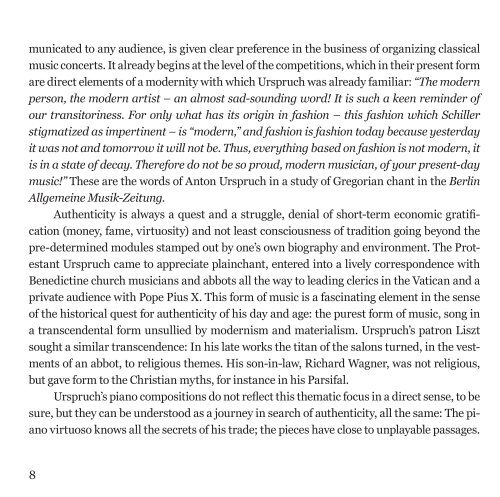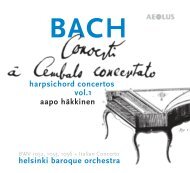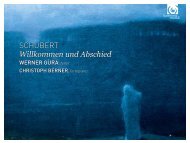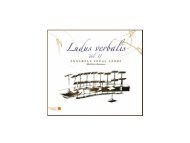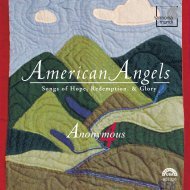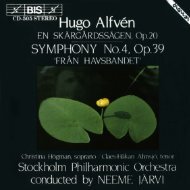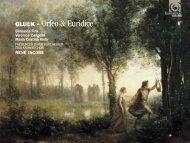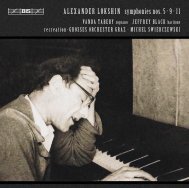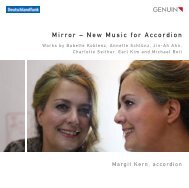Anton Urspruch (1850–1907) Complete Works for Piano ... - eClassical
Anton Urspruch (1850–1907) Complete Works for Piano ... - eClassical
Anton Urspruch (1850–1907) Complete Works for Piano ... - eClassical
You also want an ePaper? Increase the reach of your titles
YUMPU automatically turns print PDFs into web optimized ePapers that Google loves.
municated to any audience, is given clear preference in the business of organizing classical<br />
music concerts. It already begins at the level of the competitions, which in their present <strong>for</strong>m<br />
are direct elements of a modernity with which <strong>Urspruch</strong> was already familiar: “The modern<br />
person, the modern artist – an almost sad-sounding word! It is such a keen reminder of<br />
our transitoriness. For only what has its origin in fashion – this fashion which Schiller<br />
stigmatized as impertinent – is “modern,” and fashion is fashion today because yesterday<br />
it was not and tomorrow it will not be. Thus, everything based on fashion is not modern, it<br />
is in a state of decay. There<strong>for</strong>e do not be so proud, modern musician, of your present-day<br />
music!” These are the words of <strong>Anton</strong> <strong>Urspruch</strong> in a study of Gregorian chant in the Berlin<br />
Allgemeine Musik-Zeitung.<br />
Authenticity is always a quest and a struggle, denial of short-term economic gratification<br />
(money, fame, virtuosity) and not least consciousness of tradition going beyond the<br />
pre-determined modules stamped out by one’s own biography and environment. The Protestant<br />
<strong>Urspruch</strong> came to appreciate plainchant, entered into a lively correspondence with<br />
Benedictine church musicians and abbots all the way to leading clerics in the Vatican and a<br />
private audience with Pope Pius X. This <strong>for</strong>m of music is a fascinating element in the sense<br />
of the historical quest <strong>for</strong> authenticity of his day and age: the purest <strong>for</strong>m of music, song in<br />
a transcendental <strong>for</strong>m unsullied by modernism and materialism. <strong>Urspruch</strong>’s patron Liszt<br />
sought a similar transcendence: In his late works the titan of the salons turned, in the vestments<br />
of an abbot, to religious themes. His son-in-law, Richard Wagner, was not religious,<br />
but gave <strong>for</strong>m to the Christian myths, <strong>for</strong> instance in his Parsifal.<br />
<strong>Urspruch</strong>’s piano compositions do not reflect this thematic focus in a direct sense, to be<br />
sure, but they can be understood as a journey in search of authenticity, all the same: The piano<br />
virtuoso knows all the secrets of his trade; the pieces have close to unplayable passages.<br />
8


